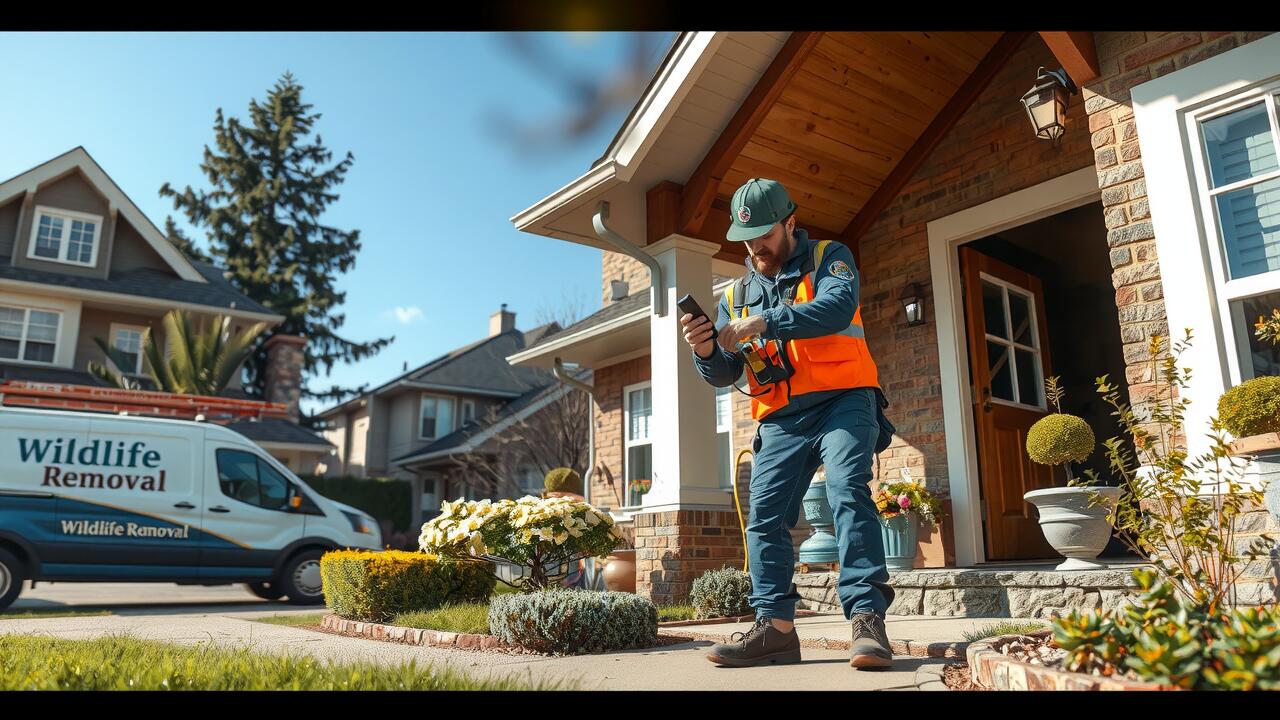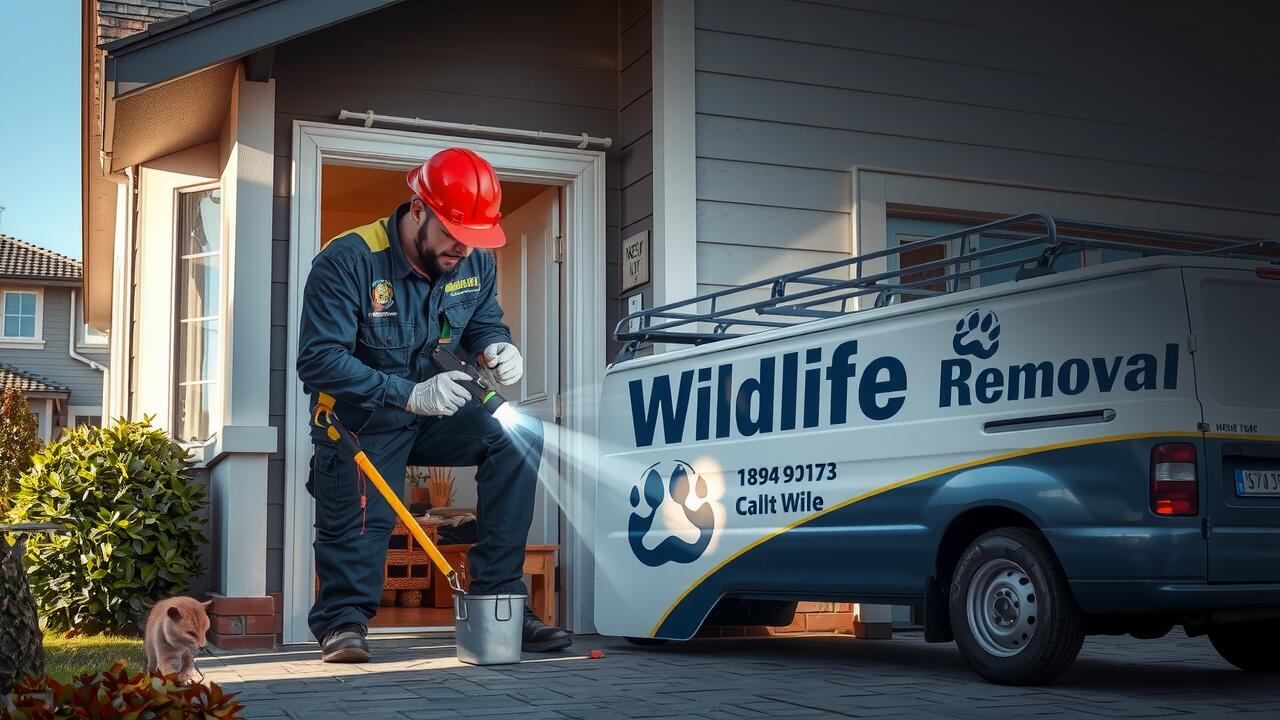
The Role of Wildlife Rehabilitation Organizations
Wildlife rehabilitation organizations play a critical role in addressing the complexities of wildlife relocation. These groups employ trained professionals who specialize in the care and rehabilitation of injured or orphaned animals. They evaluate the specific needs of various species, ensuring that wildlife is treated compassionately and effectively. Often, these organizations work in partnership with local authorities to manage situations where animals may pose a threat to public safety or property.
In areas like Pasadena, Texas, residents frequently contact these organizations for assistance with wildlife concerns. Residential wildlife removal in Pasadena, Texas, involves not only the removal of animals but also the provision of advice on how to prevent future conflicts. These organizations aim to balance the needs of wildlife with those of the community, fostering coexistence and promoting education around local wildlife issues.
How Nonprofits Assist in Wildlife Relocation
Nonprofit organizations play a crucial role in the safe and humane relocation of wildlife, especially in urban areas like Pasadena, Texas. These groups often consist of trained volunteers and professionals who specialize in wildlife rehabilitation. They work closely with local authorities to assess situations involving displaced or problematic animals. By offering their expertise, nonprofits ensure that wildlife is removed according to state regulations and in a manner that minimizes stress for the animals involved.
In Pasadena, Texas, these organizations provide essential services, contributing to both public safety and animal welfare. They often educate the community on coexistence strategies and preventive measures to avoid wildlife issues. By promoting awareness and offering support, nonprofits not only assist in residential wildlife removal but also help maintain the delicate balance between urban development and natural habitats.
Understanding Wildlife Habitats
Understanding wildlife habitats is essential for effective management of animal populations. Different species have specific habitat requirements, including food, shelter, and breeding grounds. When these needs are met, wildlife can thrive and contribute to the ecological balance. Disruptions to their natural habitats can lead to challenges for both the animals and the communities they inhabit.
Residential Wildlife Removal in Pasadena, Texas, highlights the importance of recognizing natural landscapes and their impact on local wildlife. When habitats are encroached upon or altered, animals may venture into urban areas seeking resources. This not only poses risks to the animals but can also lead to conflicts with humans. Sustainable management practices aim to minimize these issues while promoting coexistence.
Importance of Native Habitats for Species Survival
Native habitats play a crucial role in the survival of various wildlife species. Every ecosystem provides essential resources such as food, water, and shelter, allowing animals to thrive and maintain their populations. When these habitats are disrupted by urban development or other human activities, the delicate balance of wildlife communities can be severely affected. Species that rely on specific habitats may struggle to find the necessary conditions for survival, leading to declines in their numbers or even extinction.
In areas like Pasadena, Texas, understanding the need for preserving native habitats is particularly important as wildlife often encounters challenges due to urbanization. Residential wildlife removal in Pasadena, Texas, highlights the importance of addressing human-wildlife conflicts with a focus on conserving natural habitats. Effective management of these areas can mitigate risks to both human safety and wildlife populations, fostering a healthier coexistence between urban communities and the diverse species that inhabit them.
Reporting Wildlife Issues
When individuals encounter wildlife issues around their homes, it’s crucial to know how to report these situations effectively. Many local agencies and wildlife organizations are equipped to handle such cases. Residents should document the specifics of any wildlife encounter, including the type of animal, its behavior, and its location, as this information will assist authorities in addressing the problem more efficiently.
In areas like Pasadena, Texas, residents seeking professional assistance can turn to services specializing in residential wildlife removal. These experts understand local regulations and methods for safely relocating or handling wildlife. Reporting such issues allows for a more organized and humane approach, ultimately benefiting both the community and the wildlife involved.
How to Notify Authorities About Wildlife Problems
Encountering wildlife issues in residential areas can be concerning. Residents should first document the situation, noting the type of animal involved and the circumstances of the encounter. This information can be helpful when notifying local authorities or wildlife agencies. Many municipalities have designated wildlife control services or local offices that handle such matters. Providing clear details about the location and behavior of the wildlife can aid in their assessment and response.
For residents in Pasadena, Texas, reaching out to a local wildlife agency or animal control can initiate the necessary steps for intervention. Information on how to access services such as Residential Wildlife Removal in Pasadena, Texas, is typically available on city or county websites. This resource can guide individuals on which authorities to contact and what kind of assistance they can expect.
FAQS
Is it illegal to relocate wildlife in Texas?
Yes, in most cases, it is illegal to relocate wildlife in Texas without a permit. The Texas Parks and Wildlife Department regulates wildlife relocation to ensure animal welfare and ecosystem balance.
What should I do if I find a wild animal in my yard?
If you find a wild animal in your yard, it’s best to observe it from a distance. If the animal appears to be injured or poses a danger, you should contact a licensed wildlife rehabilitator or your local animal control for assistance.
Are there any exceptions to the relocation laws in Texas?
Yes, certain species may have specific regulations or exceptions. For example, nuisance animals like raccoons or skunks may sometimes be relocated under specific guidelines, but it typically requires a permit.
How can wildlife rehabilitation organizations help with wildlife issues?
Wildlife rehabilitation organizations can provide guidance, medical care, and rehabilitation for injured or orphaned animals. They can also assist in coordinating responses to wildlife issues in compliance with state laws.
What should I do if I encounter a wildlife problem that requires immediate attention?
If you encounter a wildlife problem that requires immediate attention, contact the appropriate authorities, such as local animal control or the Texas Parks and Wildlife Department, to report the situation and receive assistance.
